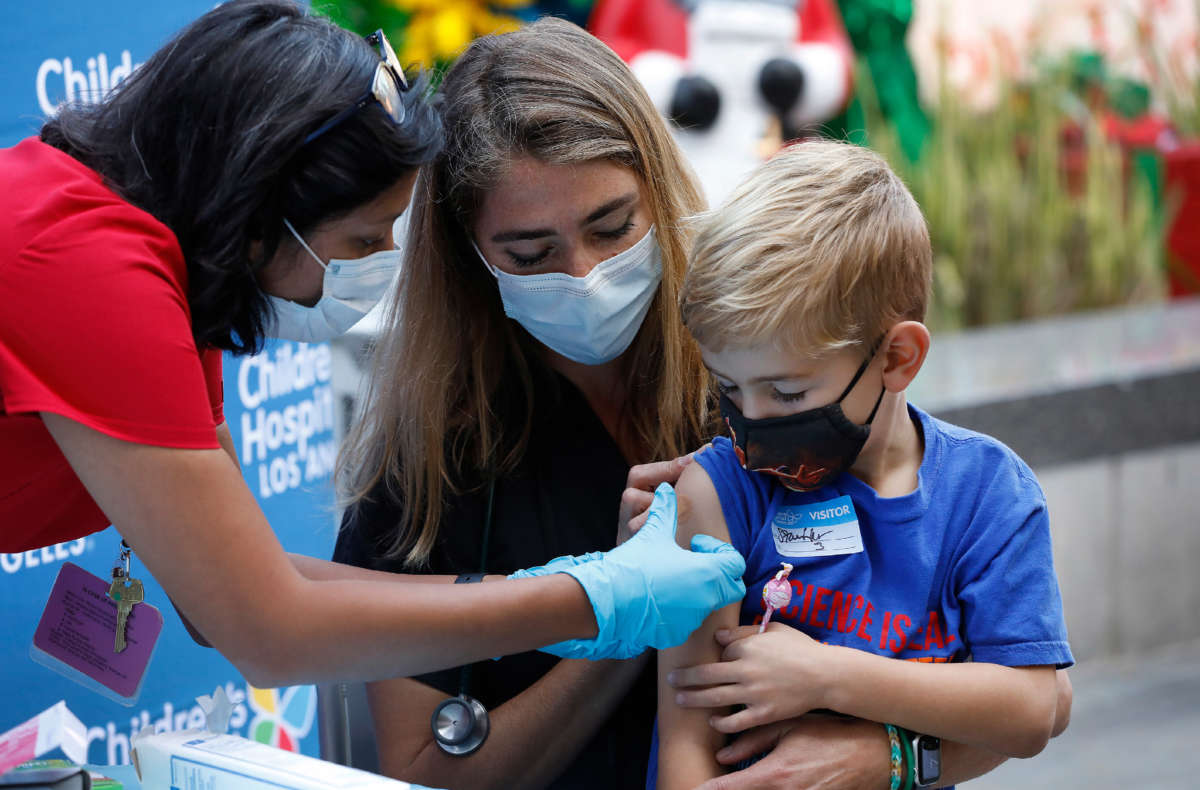As the White House rolls out its COVID-19 vaccination program for children ages 5 to 11, concerns about vaccine hesitancy and equitable access are top of mind for Biden administration officials.
Dr. Marcella Nunez-Smith, chair of the White House’s COVID-19 Health Equity Task Force, told The 19th she hopes evidence and data can help alleviate parents’ concerns and push against misinformation surrounding the vaccine. She said she wants parents to understand the thorough research that went into conducting and assessing the clinical trials for younger school-age children.
The scientists and researchers “have the right expertise and the right training and are really bringing in a lot of diverse perspectives here,” Nunez-Smith said, adding that the safety and efficacy data are strong.
The Centers for Disease Control and Prevention’s advisory committee on Tuesday unanimously recommended that children 5 to 11 years old get vaccinated against the coronavirus, using a low-dose Pfizer-BioNTech vaccine that has been given emergency authorization by the Food and Drug Administration.
Based on the trial data, the Pfizer-BioNTech’s smaller vaccine dose for this age group is 90.7 percent effective at preventing symptomatic COVID-19 infections.
Misinformation circulating about the vaccine has been “one of the more surprising and disturbing and challenging parts of” vaccination efforts during the pandemic, Nunez-Smith said. As a result, the administration and public health experts have looked to trusted sources of information like pediatricians, making sure they have the facts to relay to families.
Childhood vaccinations have driven down the number of deaths from infectious diseases overall. In light of that, the fact that an estimated 700 children have died from COVID-19 is a “staggeringly high number,” Nunez-Smith said.
The Biden administration said the program for 5 to 11 year olds will be fully operational by November 8, with doses being provided by 20,000 locations around the country, including pediatric and family care practices, pharmacies, hospitals and school clinics.
Nunez-Smith said the administration is coordinating with state and local officials to ensure equitable access to vaccine doses is baked into the program.
Low income, rural, Black, Indigenous and Latinx people have experienced more challenges with vaccine access during the pandemic. In addition to equitable distribution of the vaccine doses, factors like access to transportation or the ability to take time off to help get their child vaccinated are important factors.
From April 1 through September 30 of this year, the Biden administration offered a tax credit for small and medium-sized employers to provide paid leave for workers to get the COVID-19 vaccine or recover from any after effects. But that benefit did not include parents taking time to get their children vaccinated.
Nunez-Smith said the administration will continue to push for paid leave options and circulate other key information: that the vaccine is free to the public and does not require proof of insurance or citizenship documentation.
“I think this is really, as the president said, just a really important turning moment for the health of our children, the wellness of our children, the educational attainment and achievement of our children,” Nunez-Smith said. “The vaccine is the most powerful tool in the toolbox.”
This vaccine breakthrough will bring relief to many families, particularly those with immunocompromised children like Elena Hung’s.
Hung’s 7-year-old daughter, Xiomara, has a number of medical needs and developmental disabilities that put her at higher risk. This means her family has lived in near total lockdown since March 2020: having groceries delivered, virtual schooling and chats with friends on Zoom.
“It has been absolutely devastating and filled with anxiety and fear. It’s no exaggeration for me to say that every single day of this pandemic has been a life and death matter,” said Hung, who is the co-founder and executive director of the children’s advocacy group Little Lobbyists,.
Her two children have vaccination appointments for next week, and she feels like a weight has been lifted. After nearly 20 months of social distancing, Hung said she hasn’t thought much about what life will look like once her family is fully vaccinated.
“In large part it will depend on how many children are going to get vaccinated,” Hung said. “It’s approved, it’s available, but will parents take their kids to get vaccinated?”
Media that fights fascism
Truthout is funded almost entirely by readers — that’s why we can speak truth to power and cut against the mainstream narrative. But independent journalists at Truthout face mounting political repression under Trump.
We rely on your support to survive McCarthyist censorship. Please make a tax-deductible one-time or monthly donation.
